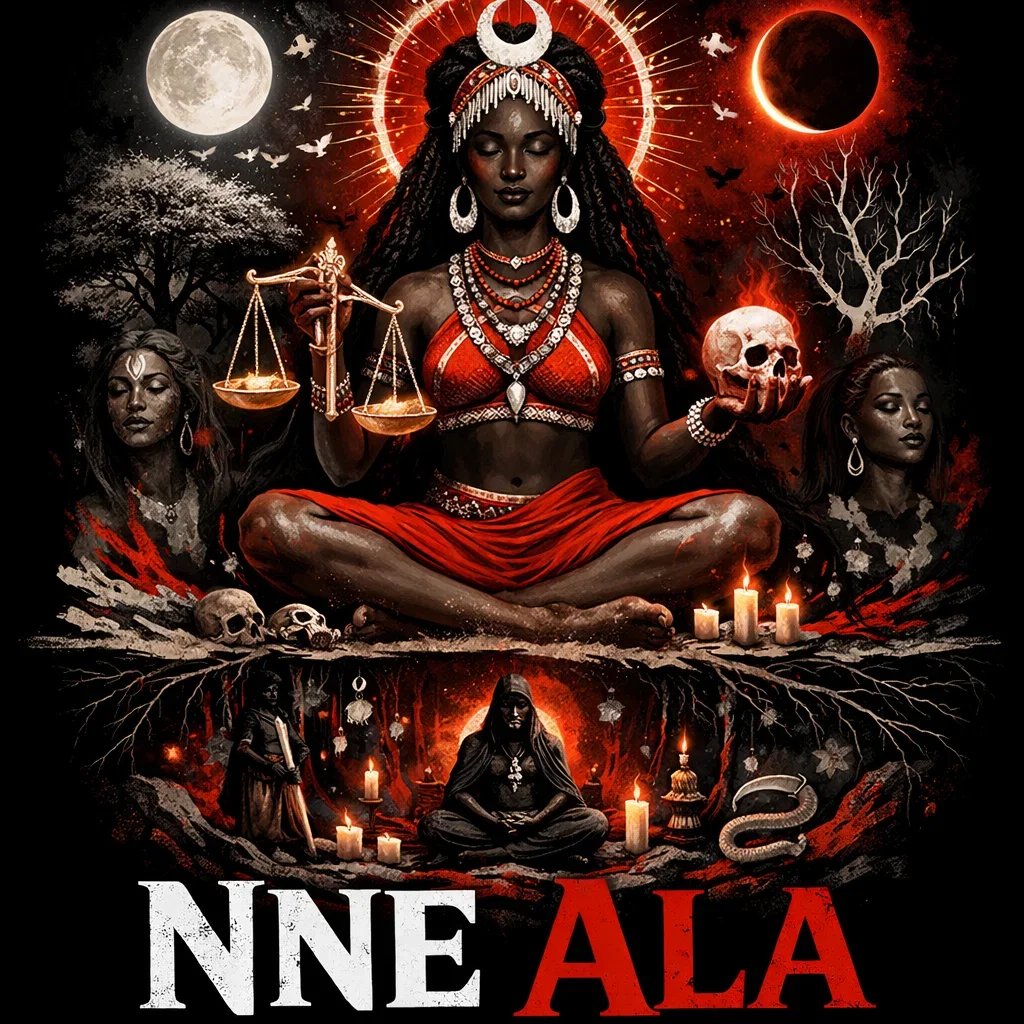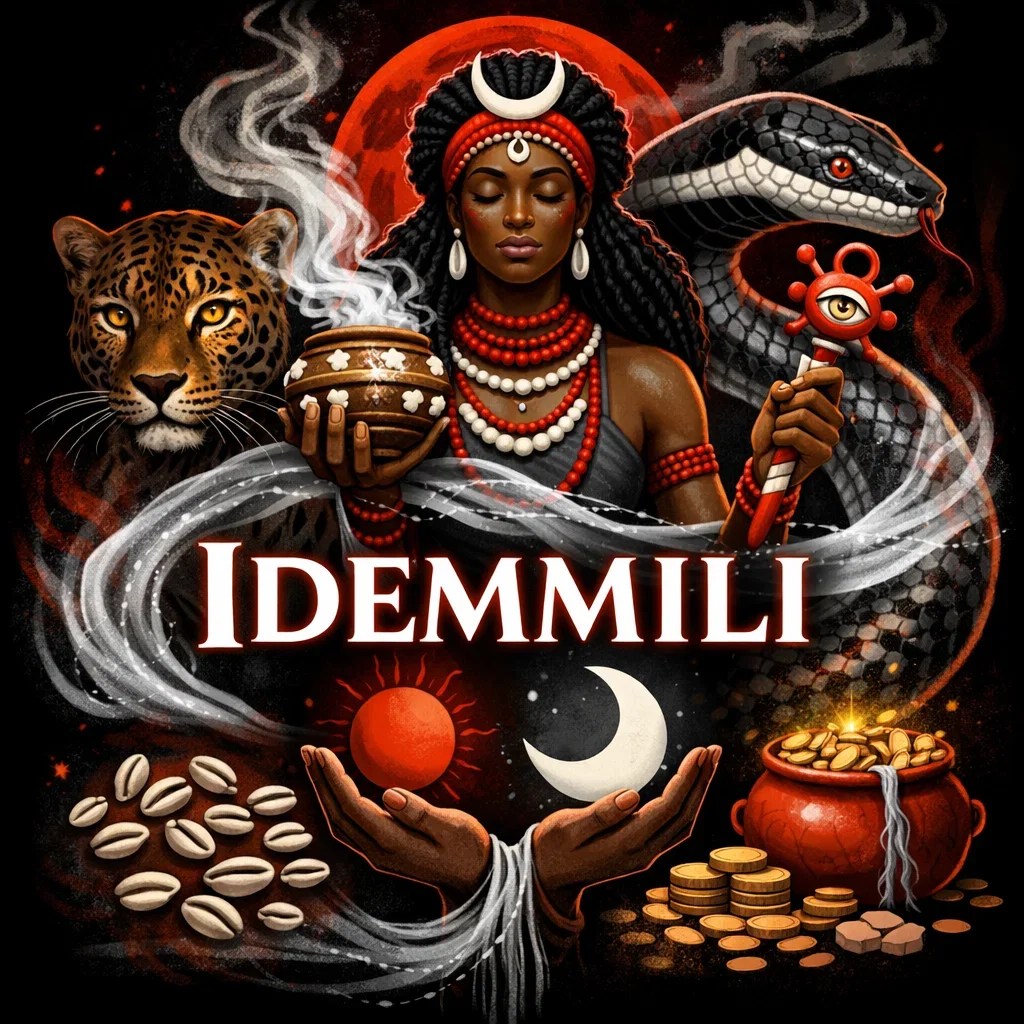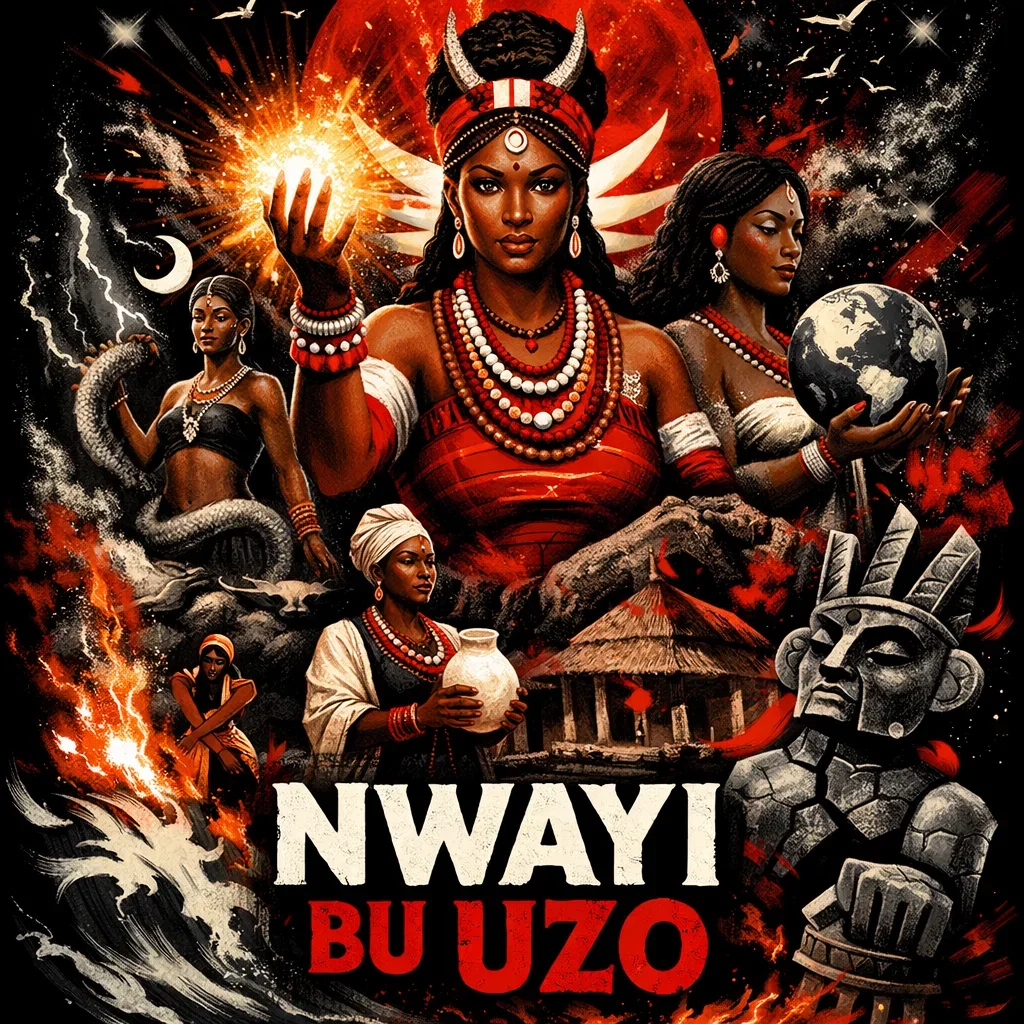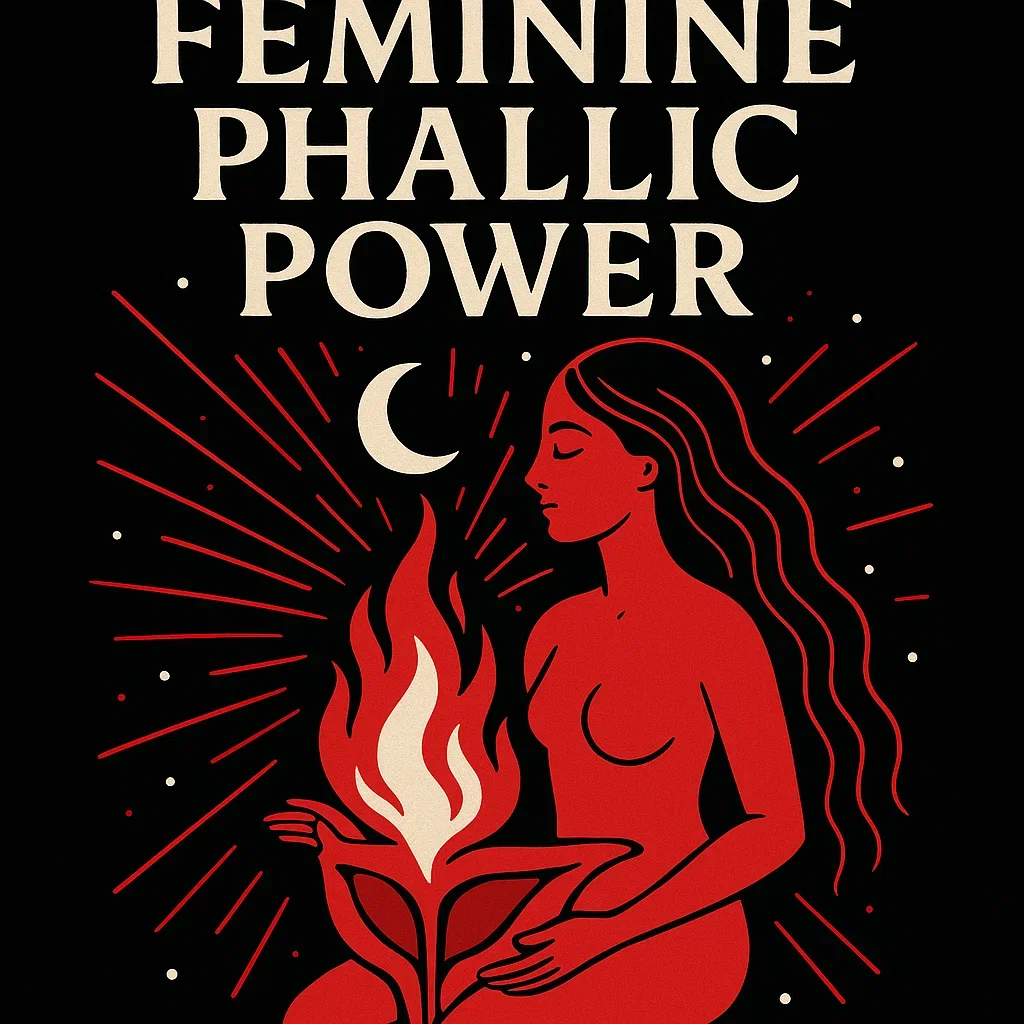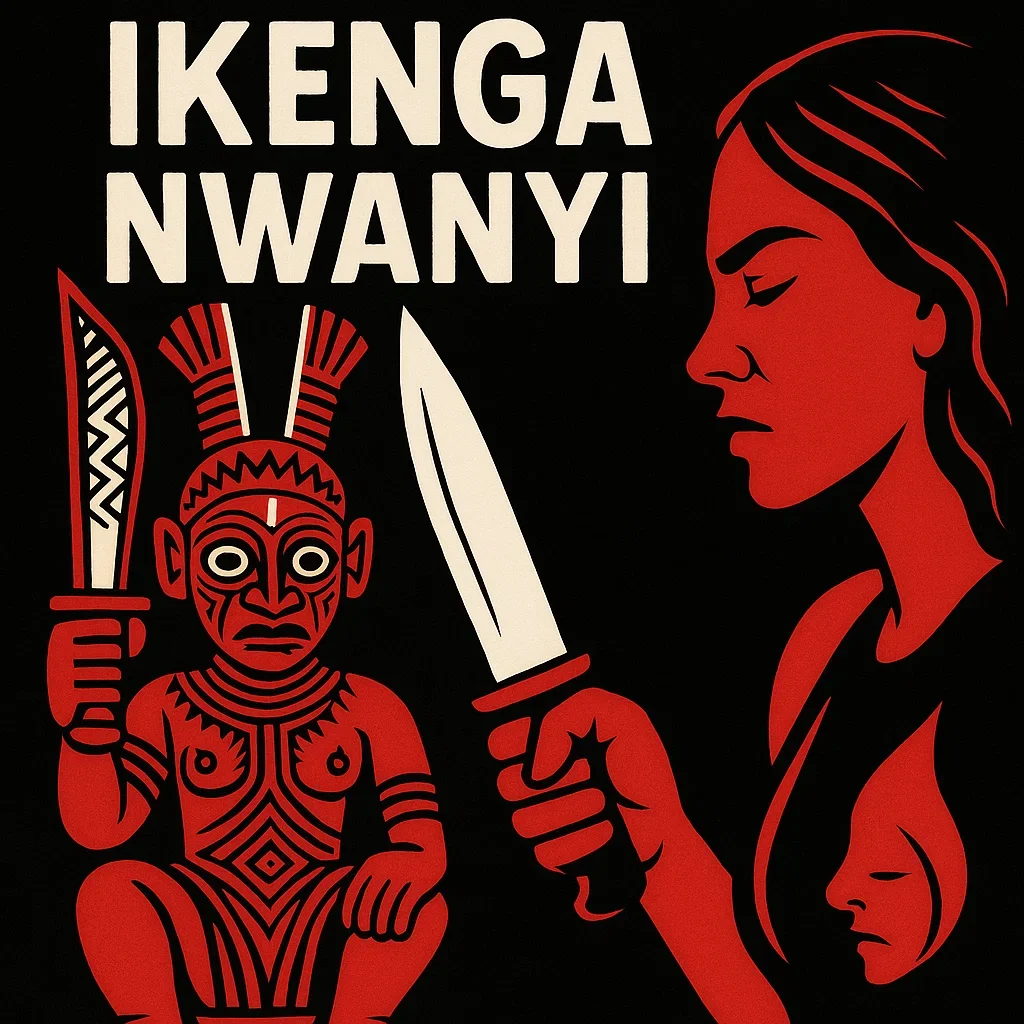Eze Nwanyi: The Role of the Igbo Priestess
This teaching is set to “Public View,” so anyone with a link can view it. Feel free to share it with others.
The role of the Eze Nwanyi—the Igbo priestess is to embody the essence of divine feminine power as Agbara Nwanyi, she serves as a conduit between the spiritual and physical realms. Her role is deeply intertwined with Nne Mmiri (the Mother of Waters), Ala (the Earth Mother), and Nnechukwu (the Great Supreme Mother of All Creation), representing the cosmic forces that sustain life and nurture our collective consciousness.
The Sacred Feminine in Igbo Cosmology
Igbo cosmology venerates the sacred feminine through various cosmic forces, deities and spirits. Nne Mmiri and Ala are two of the most revered. Nne Mmiri, the goddess of Water, symbolizes purity, fertility, and the source of all life. Water, as an element, is essential for the sustenance of life, and Nne Mmiri governs all bodies of water, from rivers to the seas. Ala, on the other hand, is the goddess of the Earth, representing fertility, morality, and the sanctity of the earth. She is the custodian of the land and the moral order, she sustains communities and ensures they adhere to the principles of justice and harmony.
The Igbo Priestess as a Living Incarnation of Nnechukwu
The Igbo priestess should ideally be seen as a human incarnation of Nnechukwu, the Great Supreme Mother of All Creation who embodies the ultimate feminine principle. As an embodiment of Nnechukwu, the priestess holds a unique position in the spiritual hierarchy. She is revered not only for her spiritual insight but also for her ability to connect with the divine feminine energies and channel them for the benefit of the community.
Duties and Responsibilities of the Eze Nwanyi
Spiritual Leadership: The priestess leads the community in various religious and spiritual ceremonies, including rituals dedicated to Nne Mmiri and Ala. Her leadership ensures the community stays connected to these cosmic forces, maintaining spiritual harmony.
Healer and Herbalist: The Igbo priestess can also serve as a healer, using her knowledge of herbs and natural remedies to treat illnesses. Her healing practices are infused with spiritual rituals that call upon the divine energies of Nne Mmiri and Ala.
Mediator and Counselor: As a mediator, the priestess resolves conflicts within the community, offering wisdom and guidance. She also provides counsel on moral and ethical issues, drawing from the principles upheld by Ala.
Custodian of Tradition: The priestess preserves and transmits the cultural and spiritual traditions of Igbo people, this is her mandate as a representative of Nne Nwanyi Okpu. She ensures that the younger generations understand and respect their heritage, establishing a sense of spiritual identity and continuity.
The Power of Nne Mmiri and Ala in Rituals
The rituals conducted by Eze Nwanyi are deeply symbolic and carry important spiritual significance. Water from sacred rivers or springs, representing Nne Mmiri, is used in purification ceremonies, blessings, and initiations. The earth, symbolizing Ala, is used in grounding rituals and in rites that honor ancestral energies and seek their guidance.
Eze Nwanyi as a Feminine Archetype
The Igbo priestess represents an archetype of empowered femininity within the human world. She embodies strength, wisdom, compassion, and authority. Her role challenges and redefines traditional gender roles, demonstrating the intrinsic power and spiritual authority of women in Igbo society.
Conclusion
The role of Eze Nwanyi—the Igbo priestess as a direct representation of Nne Mmiri, Ala, and Nnechukwu is a testament to a reverence for the divine feminine in Igbo culture. Through her, the community maintains a sacred connection to the elemental forces that sustain life.
In acknowledging the spiritual office of Eze Nwanyi, we honor the legacy of the divine feminine and recognize the vital role of women in the spiritual and cultural life of the community. The priestess stands as a powerful reminder that the feminine force is not only a source of life and nurturance but also of wisdom, healing, and moral authority.
If you have any questions on the role of Eze Nwanyi in Odinani, leave a comment below. Also see the FAQ section below. Daalu!
Frequently Asked Questions
-
The difference is mostly in the title, since their roles can sometimes overlap. A Dibia is defined by their deep knowledge and mastery of spiritual and mystical practices. So, if an Eze Nwanyi has that same level of expertise, she can also be considered a Dibia. However, as a priest, an Eze Nwanyi may have very specific spiritual duties and responsibilities that are unique to her role and may not apply to every Dibia.
-
No, the role of an Eze Nwanyi is a priestly one. She carries out spiritual duties and follows certain sacred rules and responsibilities. While having a strong connection to the Divine Feminine is a beautiful starting point, it’s not enough on its own. Becoming an Eze Nwanyi requires training, discipline, and a clear spiritual calling.

